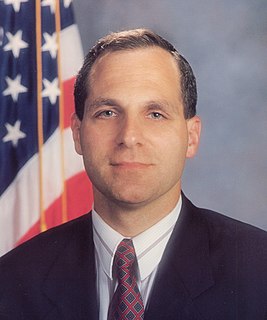A Quote by Rohini Nilekani
When 9/11 happened, it changed things overnight, giving the biggest shock treatment to individual agency. People in the U.S., the absolute stronghold of individualism and libertarianism, had to give up many cherished freedoms and privacies in exchange for the promise of public safety.
Related Quotes
If libertarianism were easy to explain, and it weren't easy to exaggerate the effects of libertarianism, I think it would have been done already. Many many very intelligent people have applied themselves to crafting an agenda that people could grab ahold of. But the problem of course is that libertarianism isn't political. It is kind of anti-political. It wants to take a lot of things out of the political arena.
The attacks of September 11, 2001, were spectacular, riveting, grim, costly and searing. The shock that they caused reverberated throughout the world. What happened in New York and Washington and Pennsylvania ended the lives of thousands of people and changed the lives of many more. But they did not change the world.
To seek Truth is automatically a calling for the innate dissident and the subversive; how many are willing to give up safety and security for the perilous life of the spiritual revolutionary? How many are willing to truly learn that their own cherished concepts are wrong? Striking provocative or mysterious poses in the safety of Internet [social media] is far easier than taking the risks involved in the hard work of genuine initiation.
The most fundamental challenge of the anthropocene concerns agency. For those who lived the Enlightenment dream (always a minority but an influential one), agency was taken for granted. There were existential threats to agency (e.g., determinism) but philosophy mobilized to refute these threats (e.g., by defending libertarianism) or to defuse them (e.g., by showing that they were compatible with agency).
The Internet is the best thing that ever happened to China. It turns us into individuals and also enables us to share our perceptions and feelings. It creates a culture of individualism and exchange even though the real society doesn't promote it. There isn't a single Chinese university that can invite me to give a talk. Even though I know there are many students who would like to hear what I have to say.
In every civilization, life grows easier. Men grow lazier in consequence. We have a picture of what happened to the individual Greek. (I cannot look at history, or at any human action, except as I look at the individual.) The Greeks had good food, good witty talk, pleasant dinner parties; and they were content. When the individual man had reached that condition in Athens, when the thought not of giving to the state but of what the state could give to him, Athens' freedom was doomed.




































